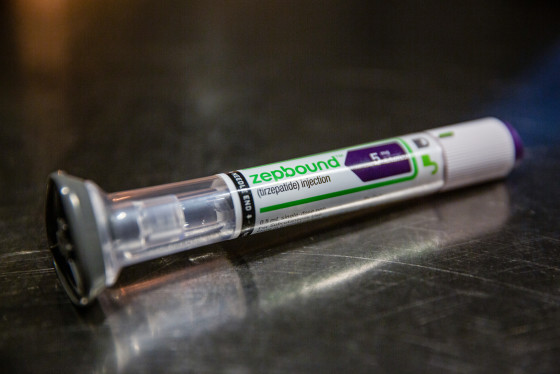The Food and Drug Administration said Thursday it’s standing by its earlier decision that the shortage of tirzepatide — the active ingredient in Eli Lilly’s diabetes and weight loss drugs Mounjaro and Zepbound — is over.
The decision means most compounding pharmacies will need to stop making compounded versions of the drug within 90 days.
Compounded tirzepatide has soared in popularity as people have sought cheaper alternatives to the brand-name drugs.
Compounded medications are essentially copies made by a licensed pharmacist and usually prescribed by a doctor. During FDA-declared shortages, it’s legal for pharmacists to make compounded versions of brand-name drugs in shortage, though drugmakers have vehemently pushed back against the legitimacy of this practice.
The FDA initially declared the tirzepatide shortage over in October, but the Outsourcing Facilities Association, a trade group for compounding pharmacists, sued, claiming the drug was still in shortage, which pushed the agency to take another look.
During its re-evaluation, the FDA said it would allow pharmacists to continue making compounded versions of tirzepatide.
In a statement Thursday, an FDA spokesperson said compounding pharmacies have until Feb. 18 to distribute their remaining supply of the compounded drugs.
However, pharmacists producing the drugs in bulk — known as 503B compounding facilities — will get an additional month, with a deadline of March 19.
"FDA may still take action regarding violations of any other statutory or regulatory requirements, such as to address findings that a product may be of substandard quality or otherwise unsafe," the spokesperson said.
A spokesperson for the Outsourcing Facilities Association did not immediately respond to a request for comment.
scott Brunner, the CEO of the Alliance for Pharmacy Compounding, another trade group, said the FDA's decision isn't the end of the story.
"Though the agency is doubling down on its October 2 shortage resolution, there's still litigation out there," Brunner said.
semaglutide, the active ingredient in Novo Nordisk's diabetes and weight loss drugs Ozempic and Wegovy, is still in shortage, according to the FDA.
Thursday's decision is a major win for Lilly, which maintained through the lawsuit that the shortage had been resolved. It has also pushed back on compounded versions of the drugs.
A Lilly spokesperson said in a statement Thursday that "anyone marketing or selling unapproved tirzepatide knockoffs must stop."
Lilly had first indicated in August that the tirzepatide shortage would be resolved soon, two months before the FDA's initial decision that it was resolved.

